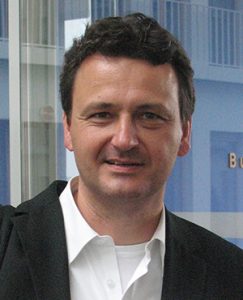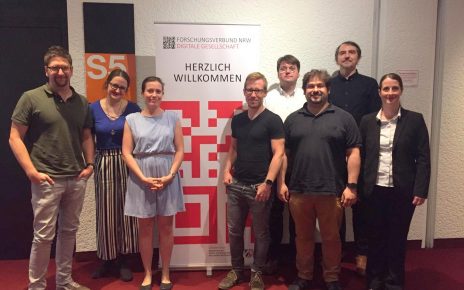Boberg, S., Schatto-Eckrodt, T., & Frischlich, L. (2018, 26. Mai). Singling out voices in an ocean of noise, 68ste Jahrestagung der International Communication Association (ICA), Prag. [NWG 1]
AbstractThe digital society offers new possibilities for democratic participation as well as for disseminating manipulative content. Strategic agents are abusing the easy access to digitally generated publics to spread online propaganda, fake news, fear and hate speech. Such manipulative online content has been assumed to play a crucial role in radicalizing individuals, fostering social polarization, and weakening democracy per se. Even if the empirical evidence partly contradicts such dramatic expectations, the consequences of manipulative online communication should not be underestimated. In consequence, in order to support media recipients in dealing with manipulation attempts via online-media, it is necessary to promote users digital democratic resilience, their individual resistance against manipulative attempts and their ability to make autonomous decisions in virtual communication spheres. However, in order to implement effective tools empowering users and promoting digital democratic resilience, an in-depth understanding of the actors, target groups and impacts of the aforementioned phenomena is needed.
Approach DemoRESILdigital addresses this need. The research team will analyze the actors, dissemination and impact of online propaganda, fake news, fear- and hate speech on different target groups by means of an innovative integration of methods from social sciences, computer science, data science and experimental research on media effects. On this basis, this interdisciplinary junior research group formed by communication scientists and computer scientists will identify and implement suitable intervention and prevention measures to promote democratic resilience.
Am 17. Juni 2019 veranstaltete der Forschungsverbund NRW Digitale Gesellschaft im Wissenschaftszentrum Bonn einen Workshop zum Thema „Juniorprofessur, Tenure-Track-Professur und Nachwuchsgruppenleitung“ unter der Leitung von Dr. Juliane Lorenz (Justitiarin für Hochschul- und Beamtenrecht im DHV) und Sascha-Sven Noack (Justitiar für Hochschul- und Beamtenrecht im DHV). Der Workshop, der im Rahmen des Moduls „Schlüsselqualifikationen“ stattfand, diente den teilnehmenden NachwuchsgruppenleiterInnen zur intensiven Schulung in arbeitsrechtlichen und hochschulrechtlichen Themen und Fragestellungen.Von den ReferentInnen wurden unter anderem die folgenden Aspekte adressiert:
Sonderstellung des Juniorprofessors/der Juniorprofessorin in der HochschuleArbeitsrechtliche Sonderfragen der NachwuchsgruppenleiterInnnenWeisungsfreiheit, Unabhängigkeit und SelbständigkeitResidenzpflicht, PräsenzpflichtUrlaub und DienstreisenBesonderheiten der Arbeitszeit Nebentätigkeitsrecht Disziplinarrechtliche Aspekte Rechte und Pflichten als Fachvorgesetzte/r Wissenschaftliches Fehlverhalten
 Prof. Dr. Neuberger lehrt seit 2019 an der Freien Universität Berlin im Fach Publizistik- und Kommunikationswissenschaft und ist stellvertretender geschäftsführender Direktor des Weizenbaum-Instituts. Von 2011 bis 2019 hatte er eine Professur für Kommunikationswissenschaft mit dem Schwerpunkt „Medienwandel“ an der Ludwig-Maximilians-Universität München. Er studierte an der Katholischen Universität Eichstätt Journalistik (Diplom), Politikwissenschaft, Soziologie und Philosophie. Er promovierte (1995) und habilitierte (2001) sich in Eichstätt. 2001/02 vertrat er eine Professur für Journalistik an der Universität Leipzig. Von 2002 bis 2011 war er Professor für Kommunikationswissenschaft an der Westfälischen Wilhelms-Universität Münster. Er ist ordentliches Mitglied der Bayerischen Akademie der Wissenschaften (BAdW) und der Deutschen Akademie der Technikwissenschaften (acatech). Sein Arbeitsschwerpunkt ist der digitale Wandel von Öffentlichkeit und Journalismus.
Prof. Dr. Neuberger lehrt seit 2019 an der Freien Universität Berlin im Fach Publizistik- und Kommunikationswissenschaft und ist stellvertretender geschäftsführender Direktor des Weizenbaum-Instituts. Von 2011 bis 2019 hatte er eine Professur für Kommunikationswissenschaft mit dem Schwerpunkt „Medienwandel“ an der Ludwig-Maximilians-Universität München. Er studierte an der Katholischen Universität Eichstätt Journalistik (Diplom), Politikwissenschaft, Soziologie und Philosophie. Er promovierte (1995) und habilitierte (2001) sich in Eichstätt. 2001/02 vertrat er eine Professur für Journalistik an der Universität Leipzig. Von 2002 bis 2011 war er Professor für Kommunikationswissenschaft an der Westfälischen Wilhelms-Universität Münster. Er ist ordentliches Mitglied der Bayerischen Akademie der Wissenschaften (BAdW) und der Deutschen Akademie der Technikwissenschaften (acatech). Sein Arbeitsschwerpunkt ist der digitale Wandel von Öffentlichkeit und Journalismus.
 Prof. Dr. Neuberger lehrt seit 2019 an der Freien Universität Berlin im Fach Publizistik- und Kommunikationswissenschaft und ist stellvertretender geschäftsführender Direktor des Weizenbaum-Instituts. Von 2011 bis 2019 hatte er eine Professur für Kommunikationswissenschaft mit dem Schwerpunkt „Medienwandel“ an der Ludwig-Maximilians-Universität München. Er studierte an der Katholischen Universität Eichstätt Journalistik (Diplom), Politikwissenschaft, Soziologie und Philosophie. Er promovierte (1995) und habilitierte (2001) sich in Eichstätt. 2001/02 vertrat er eine Professur für Journalistik an der Universität Leipzig. Von 2002 bis 2011 war er Professor für Kommunikationswissenschaft an der Westfälischen Wilhelms-Universität Münster. Er ist ordentliches Mitglied der Bayerischen Akademie der Wissenschaften (BAdW) und der Deutschen Akademie der Technikwissenschaften (acatech). Sein Arbeitsschwerpunkt ist der digitale Wandel von Öffentlichkeit und Journalismus.
Prof. Dr. Neuberger lehrt seit 2019 an der Freien Universität Berlin im Fach Publizistik- und Kommunikationswissenschaft und ist stellvertretender geschäftsführender Direktor des Weizenbaum-Instituts. Von 2011 bis 2019 hatte er eine Professur für Kommunikationswissenschaft mit dem Schwerpunkt „Medienwandel“ an der Ludwig-Maximilians-Universität München. Er studierte an der Katholischen Universität Eichstätt Journalistik (Diplom), Politikwissenschaft, Soziologie und Philosophie. Er promovierte (1995) und habilitierte (2001) sich in Eichstätt. 2001/02 vertrat er eine Professur für Journalistik an der Universität Leipzig. Von 2002 bis 2011 war er Professor für Kommunikationswissenschaft an der Westfälischen Wilhelms-Universität Münster. Er ist ordentliches Mitglied der Bayerischen Akademie der Wissenschaften (BAdW) und der Deutschen Akademie der Technikwissenschaften (acatech). Sein Arbeitsschwerpunkt ist der digitale Wandel von Öffentlichkeit und Journalismus.
